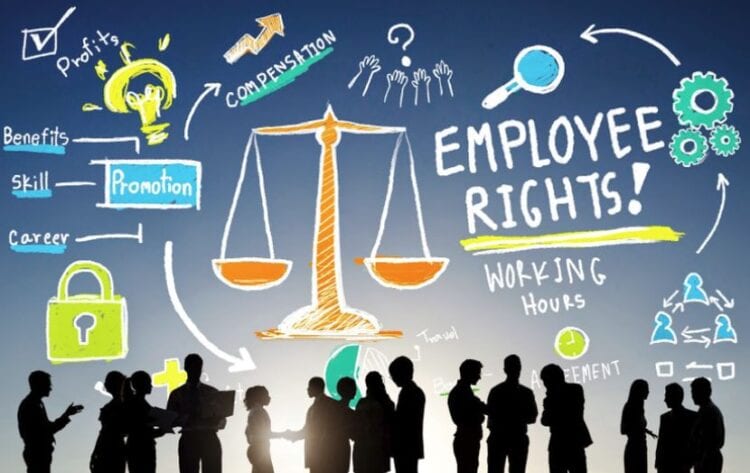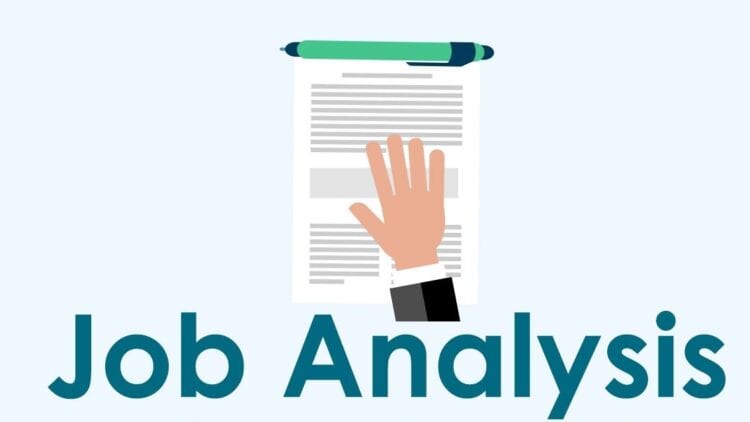Poor employee selection can have a negative effect on a company’s reputation and jeopardize work ethic and productivity. To avoid such effects, it is necessary to perform the employment process as well as possible. What are the typical mistakes that employers make when hiring, and how to avoid them? These are 6 common mistakes that you should learn from.
New Time – New Employment Rules

It is an indisputable fact that the rules in today’s labor market have changed a lot. Previously, it was enough for employers to publish a job advertisement, and they would receive a large number of applications – large enough to create a systematic and high-quality selection procedure and to choose the best one from the applied candidates. Today, not only is the number of job advertisements reduced – but also candidates who send their CV and cover letter usually do not meet the requirements of the employer in terms of their knowledge, skills, and work experience. It turns out that employers today need to work much harder to reach quality people at all.
Qualities You Must Possess When Employing People
Selecting an employee is not an easy task. Therefore, the employer and his HR team must be adorned with certain characteristics.
● Ability to listen
Why did this quality come first? Because only by actively listening can you understand the needs of candidates or clients. It is important to understand why the candidate is looking for a new job and what he or she needs or what he or she thinks you need. On top of that, did you know that almost 80% of communication is nonverbal communication? Are verbal and nonverbal communication aligned? While it is important to hear what the other party is saying, sometimes it is even more important to read what is not said aloud.
● Empathy

Working with people means recognizing and appreciating different personality types, treating people as people, not as the number of applications for an ad. People who employ candidates must first and foremost ensure a pleasant experience in the selection process. Try to imagine yourself going through the selection process of your own company. Are you comfortable? Is it boring? Does it take too long? Did you get enough information as a candidate? Each candidate should receive clear information about the job, the length of the selection process, and constructive feedback. Unfortunately, part of the communication also includes the part where the candidate needs to be told that he did not get the job. It doesn’t have to be a negative experience. Excellent recruitment experts know how candidates can convey constructive feedback to help them prepare for other interviews – and thus work on their own company’s ’employer branding’:
Now, let’s see what are the most common hiring mistakes, and how should you avoid them.
6 Common Hiring Mistakes Employers Make

1. Poorly Created Job Ad
The advertisement must be created in such a way that the employee immediately learns relevant information about the company – and has a clear vision of which job he is applying for. The most common mistakes that employers and HR staff of a company make are related to the very creation of job advertisements. Namely, when creating job advertisements, it happens that companies do not clearly describe the activity they are engaged in. Also, they do not describe the company’s strategy and vision clear enough – which is often accompanied by a weaker presentation of the company on its website. All of this significantly narrows the interest of potential employees – because they essentially cannot create any expectations related to the company. A similar effect occurs due to a vague or general description of job requirements – or a description of only a small portion of work tasks.
2. Employers Often Forget About Job Analysis

Job analysis aims to obtain a description and list of information about the workplace and the worker. About what and how a worker should work, in what conditions – and without what qualities, abilities, and skills it cannot work. In addition to being an important part of the professional staff selection process – job analysis is also important in many other processes such as performance appraisal, salary determination, work efficiency improvement, education, and professional development. Methods for job analysis include observation, individual interviews, questionnaires, group interviews – and recording of work activities. It is also advisable to evaluate the rest of the work team to get a clearer picture of what kind of candidate would best fit the intended job.
3. Skipping The Candidate Check-Up And Verification Before Recruitment
Checking candidates before hiring is one of the most important items in the work of the human resources department of any serious company. The main task of the agencies dealing with this business for you – is to provide a comprehensive investigation of your job candidates and to determine the appropriate level of security clearance according to the current position in your organization and business environment. No human resources department has sufficient capacity to screen candidates before recruitment in a way that would guarantee that the selected candidate is appropriate for your organization. In other words, pre-employment screening aims to check the suitability of candidates for specific job requirements, along with checking all the information and documents submitted in the recruitment process.
4. Pre-Selection Of Job Candidates Using A CV Without Clear Criteria
Define clear criteria for the selection of candidates moving on to the further selection process and do not rush the process. None of us are immune to bias when reading a candidate’s resume. These biases stem from our previous experience or the experience of people close to us, so it can happen during the reading of the CV that we choose only the candidate profile that is acceptable to us for some reason. Some employers focus on job polyvalence and loyalty to previous employers. They look at loyalty or loyalty to an employer through the length of service in companies from CVs, and they know someone who has successfully performed the work of different departments with only two different employers for many years.
5. Unnecessary Extension Of The Selection Procedure
The selection procedure should be the same for all candidates, and should not be unnecessarily extended. The most common procedure used during candidate selection is an interview. A job interview can be unstructured or structured. During an unstructured interview, the assessor asks questions quite spontaneously without prior preparation – while in a structured interview the questions are prepared in advance and are the same for all candidates. Research always favors a structured interview – because it offers a much better prognosis of job success than an unstructured one. However, in practice, we can still come across examples where a job interview is conducted in an unsystematic and unprepared way – and looks more like a coffee get-together than a formal situation.

6. Changing Question Sets
A very common mistake that happens in practice is to change the set of questions too often, depending on the candidates. Of course, a certain amount of flexibility is welcome during the interview because you will get additional information that you want to examine better. When preparing questions for a structured interview – it is important to identify what kind of information you need. It is recommended that a good part of the prepared questions for the job, in addition to the classic questions – are so-called behavioral questions that are directly related to work tasks. If you have the time and are well acquainted with the work tasks, you can also create situational questions – with which you need to create grades for the intended answers.
The Bottom Line
In addition to interviews, the following measures can be used in the selection process: tests of specific knowledge and skills, tests of work experience, assessment center, tests of cognitive abilities, and personality tests. To reduce the risk of employment, it is necessary to use as many of these measures as possible – especially when hiring candidates for highly responsible job positions. We wish you good luck in search of employees.

